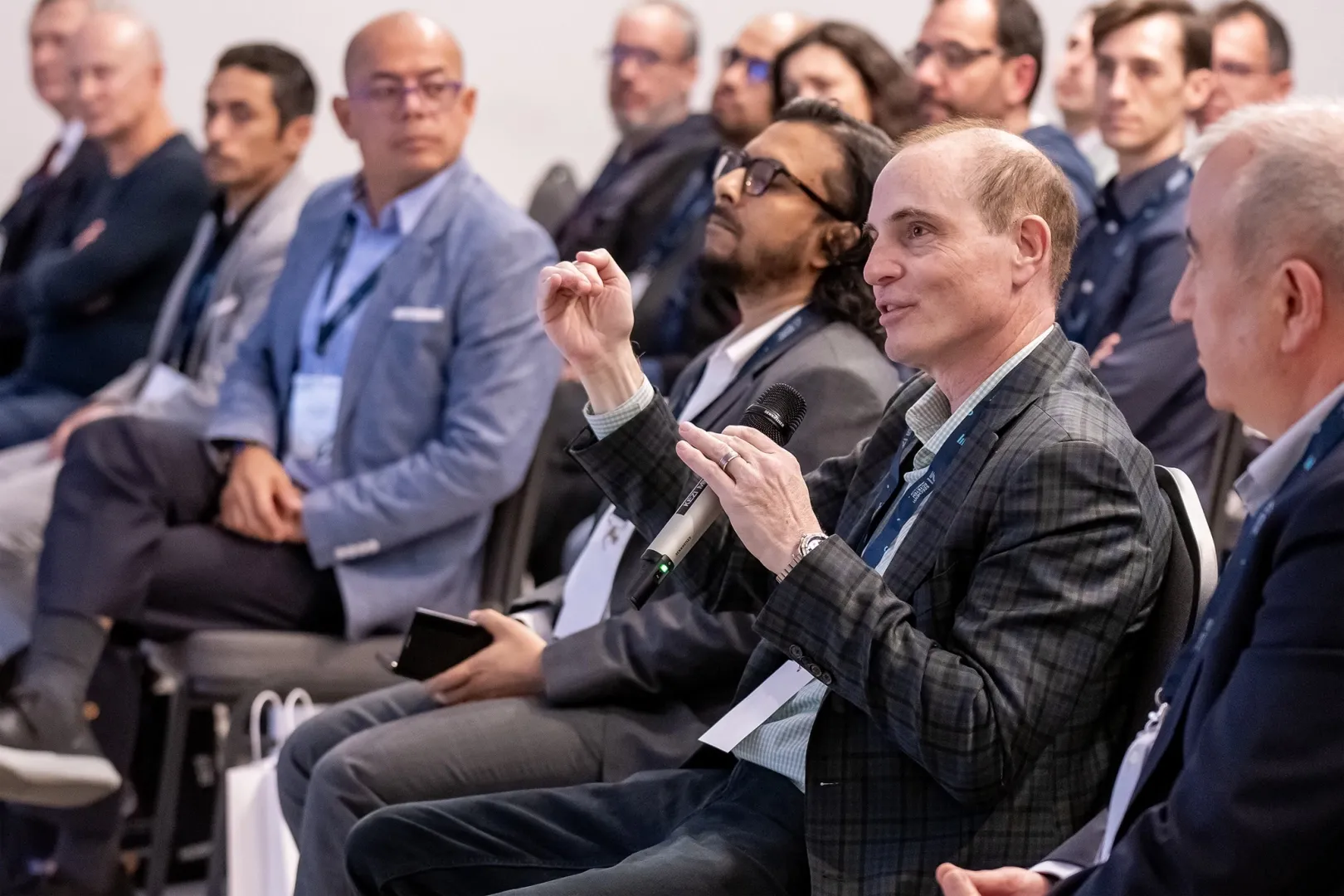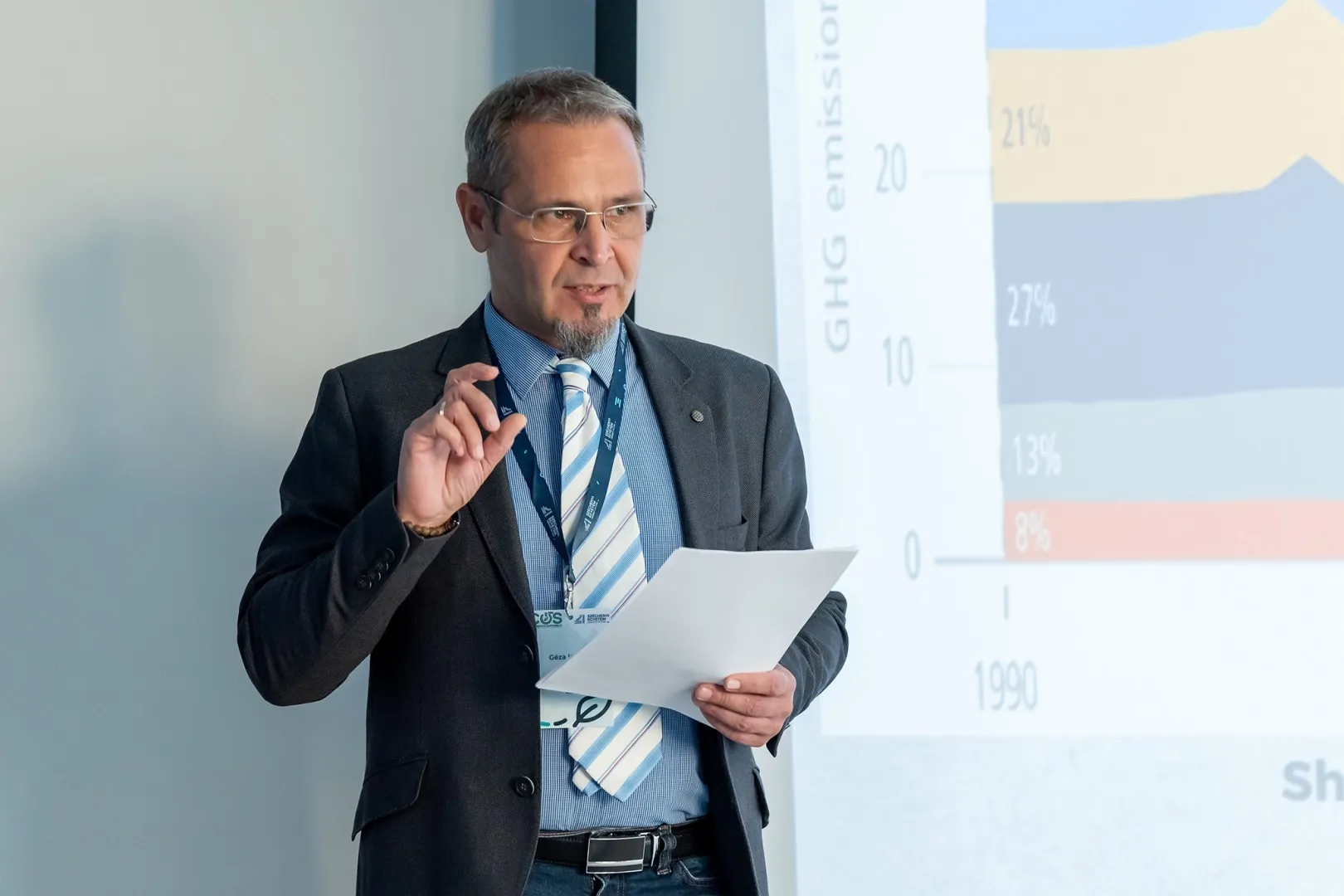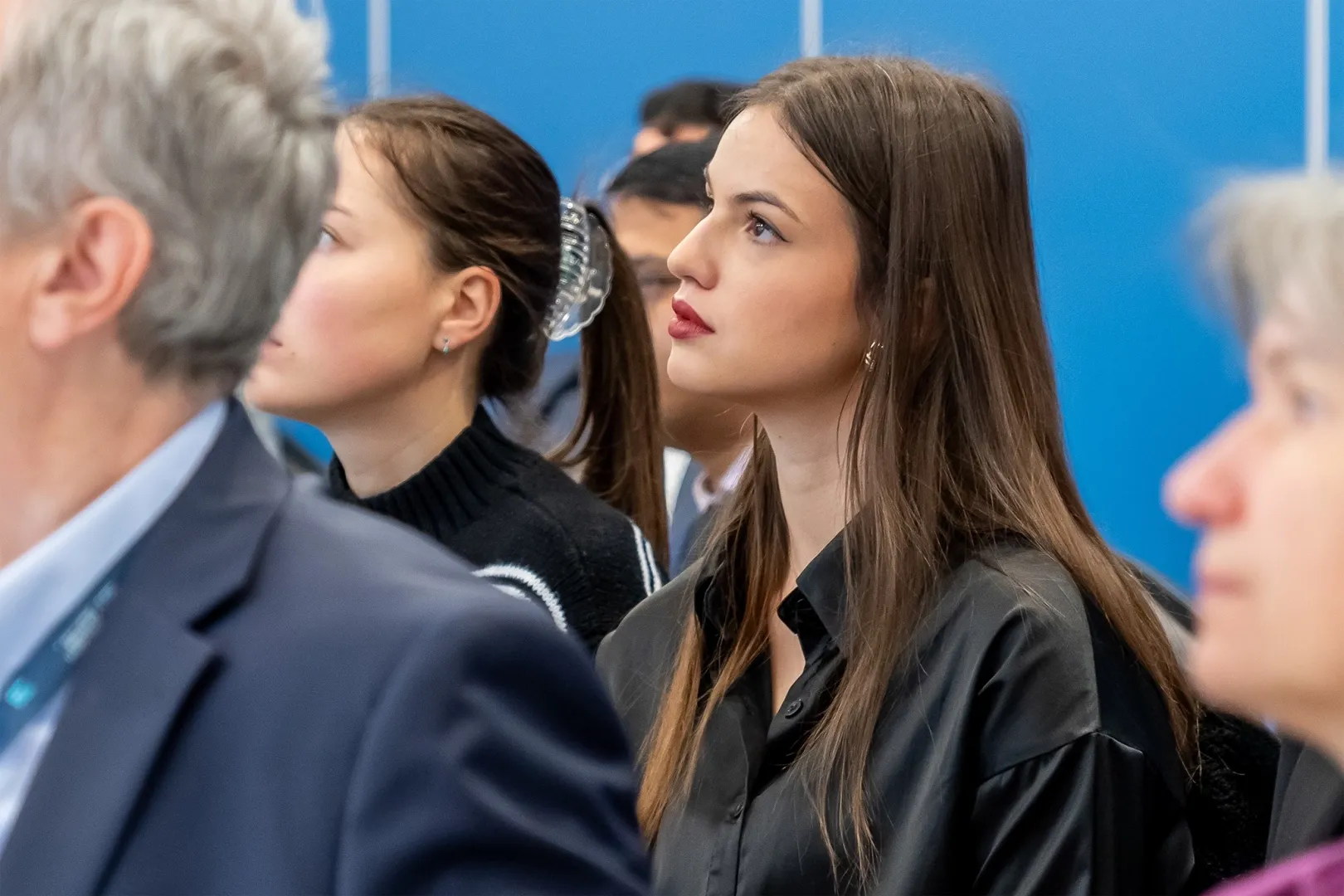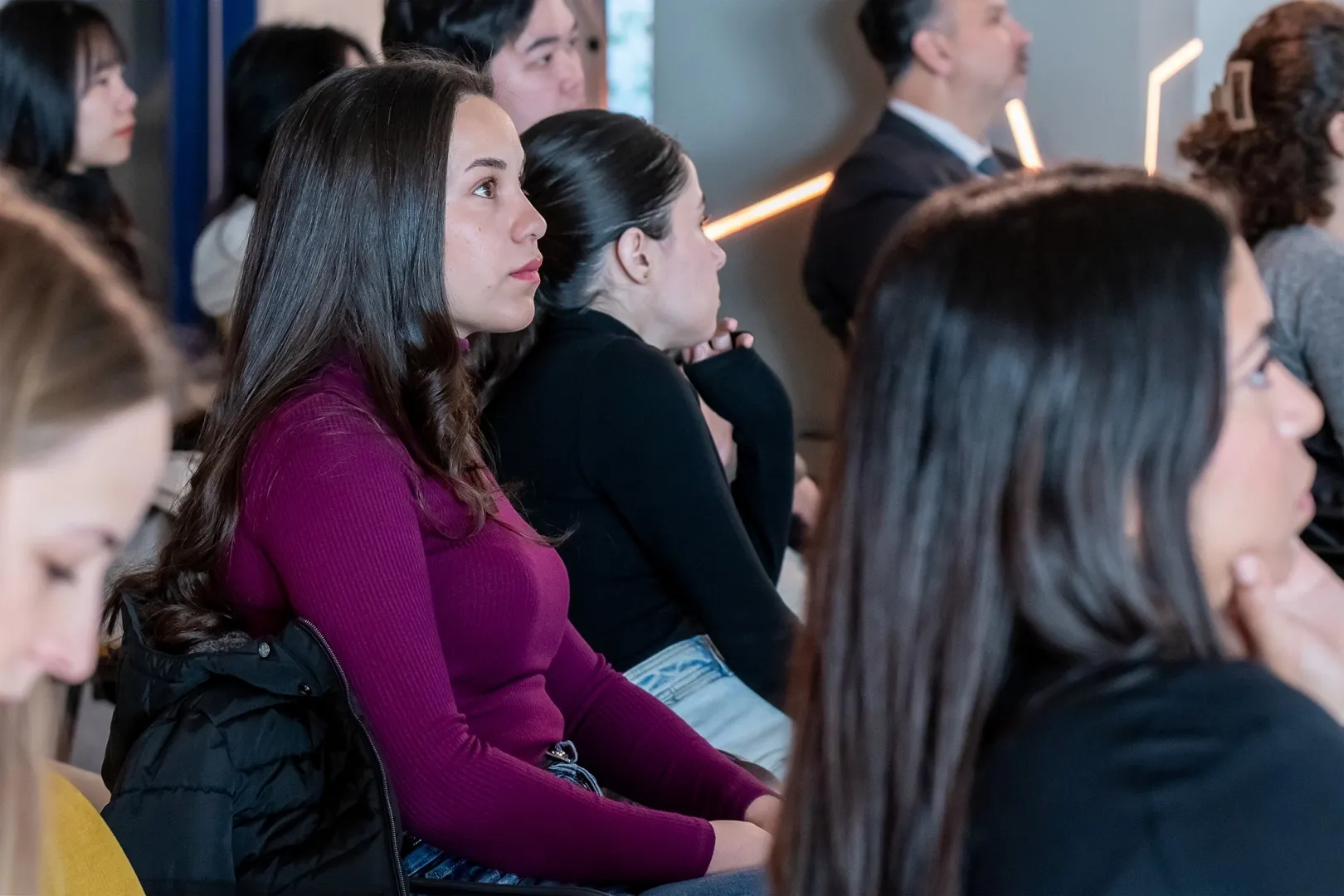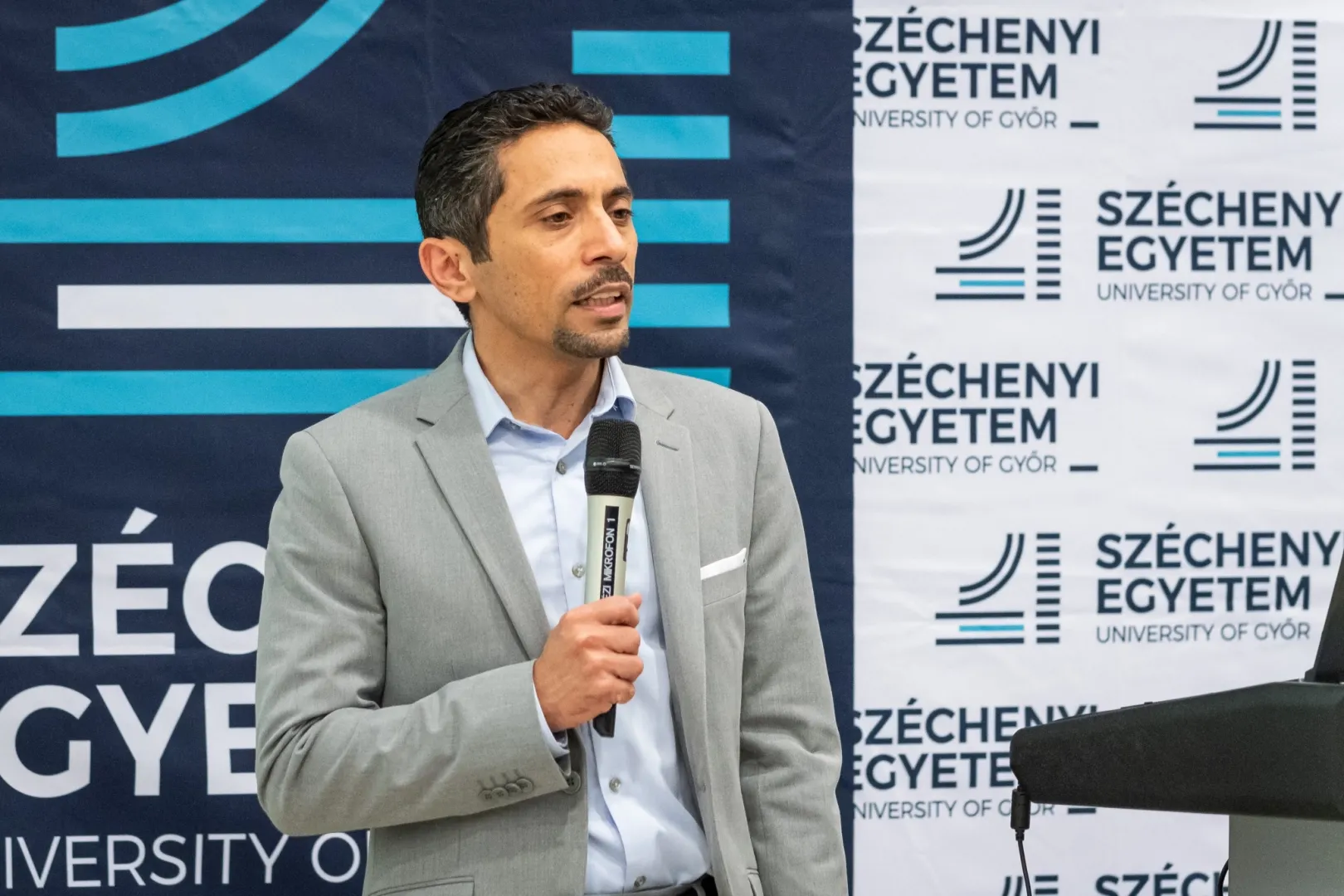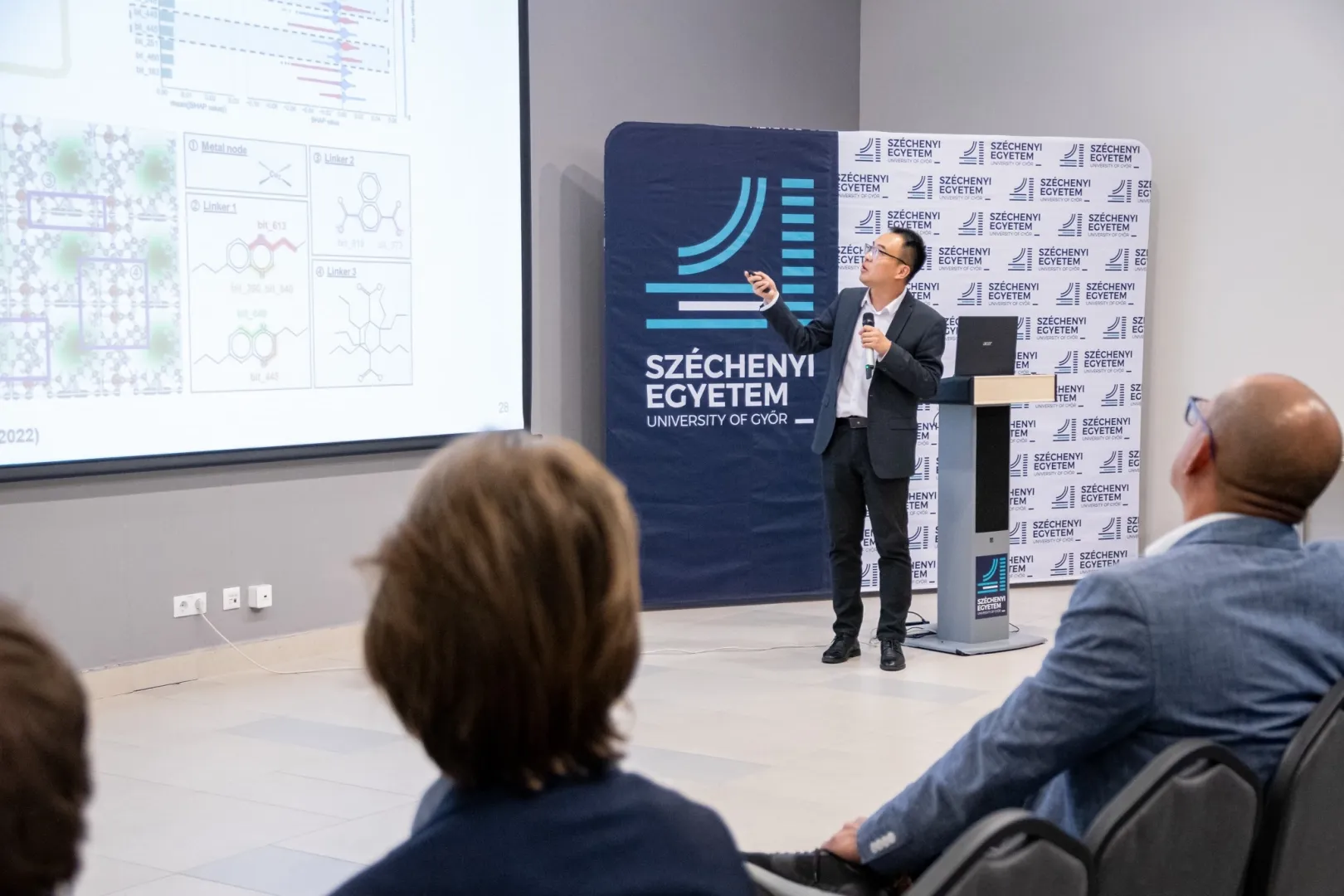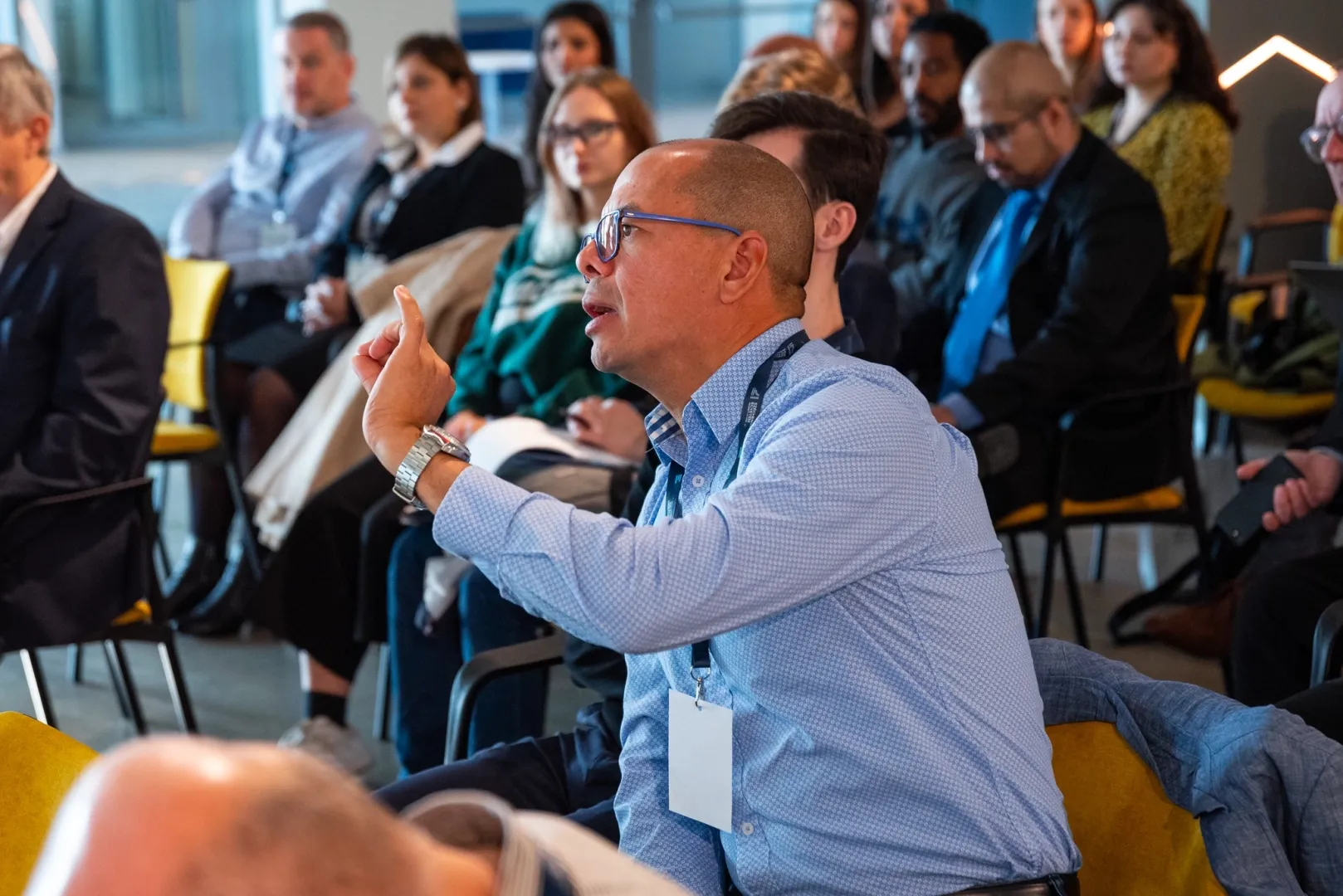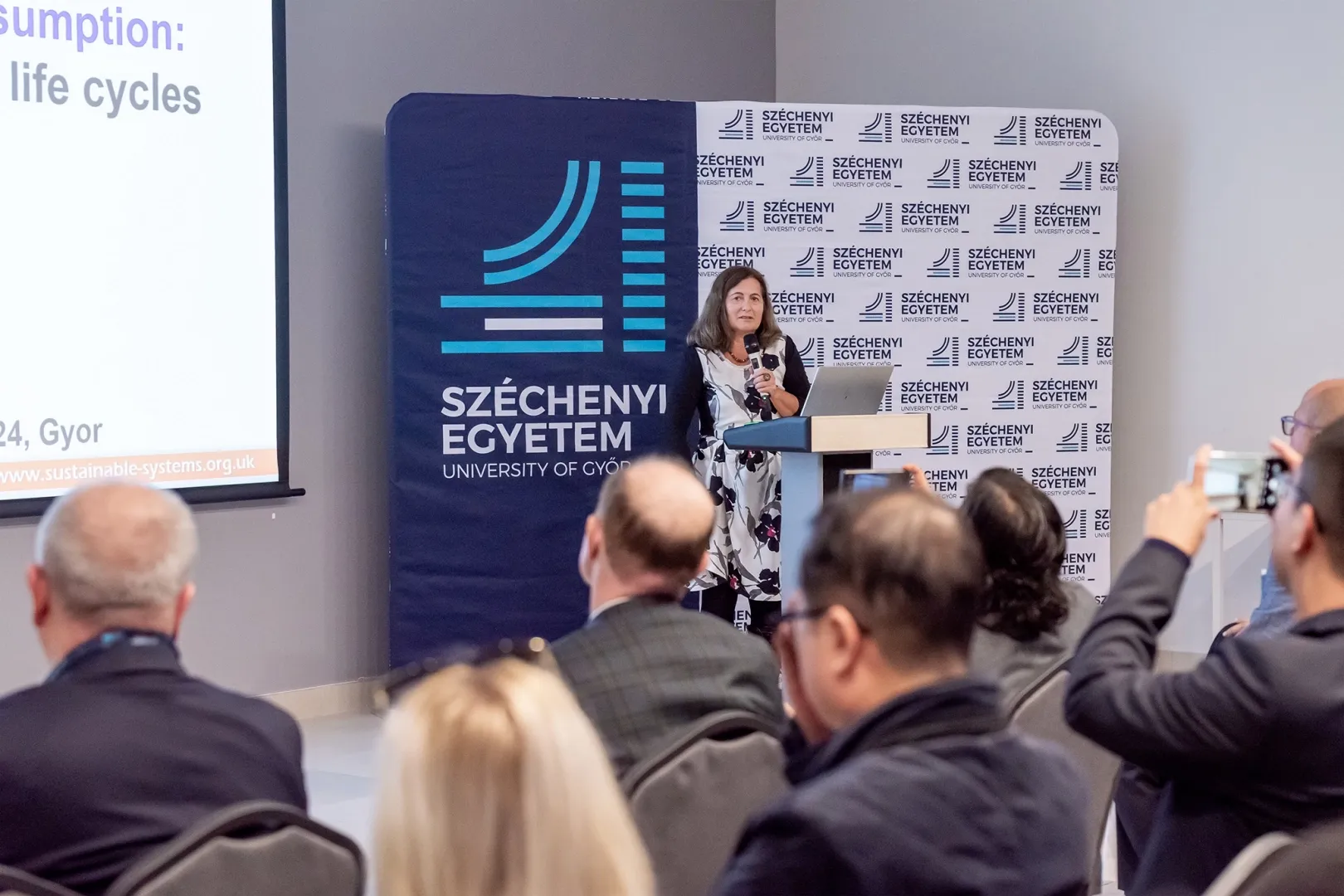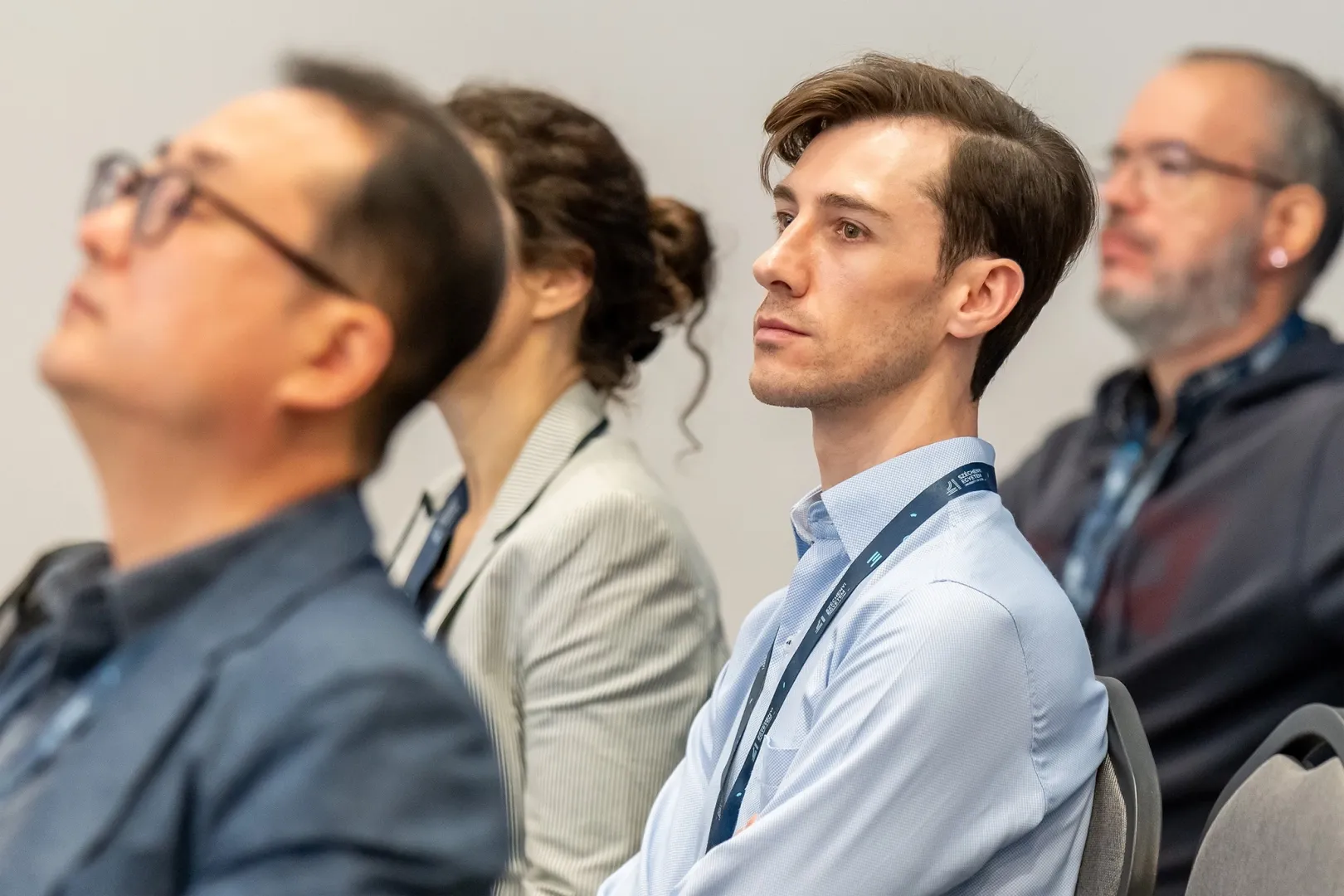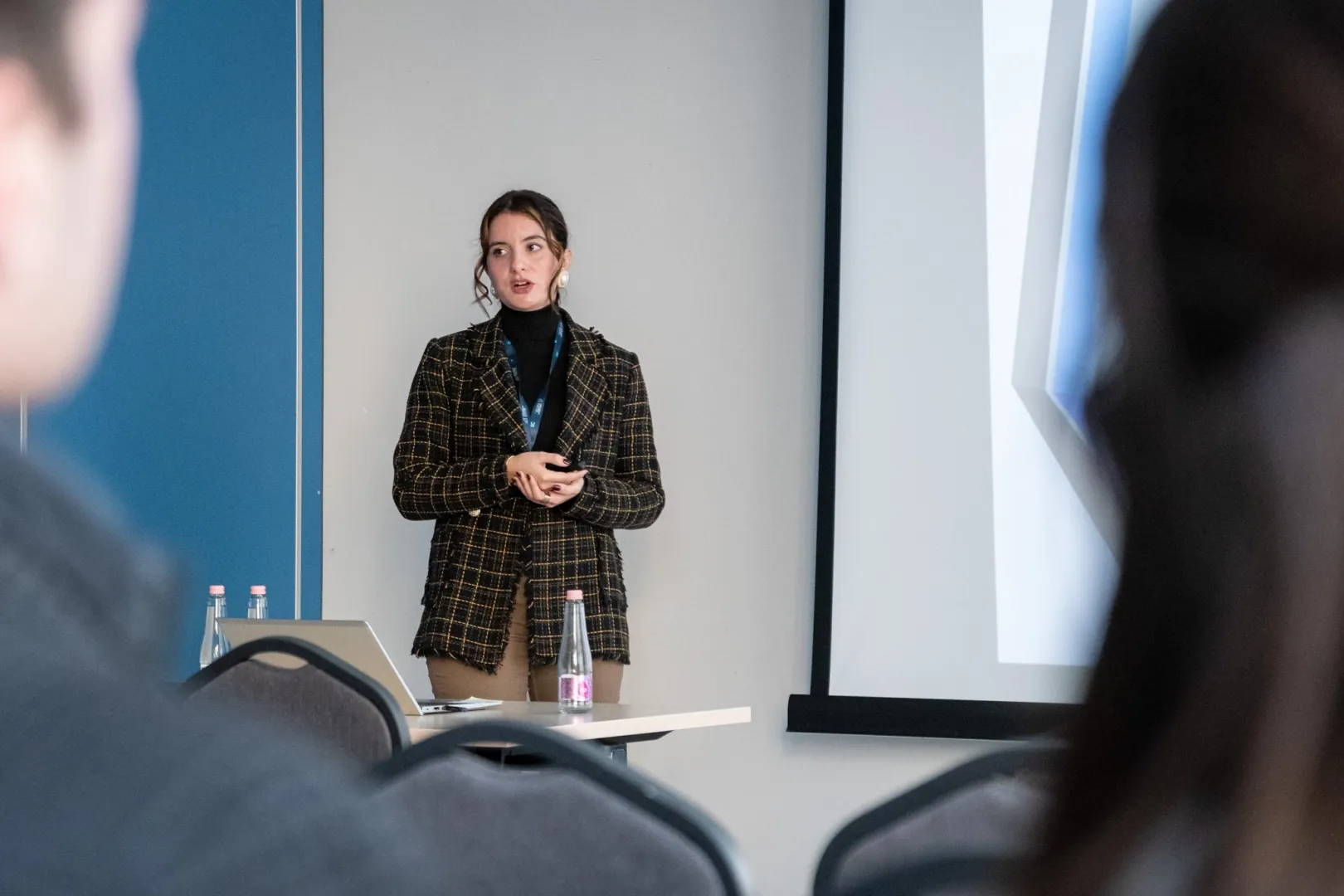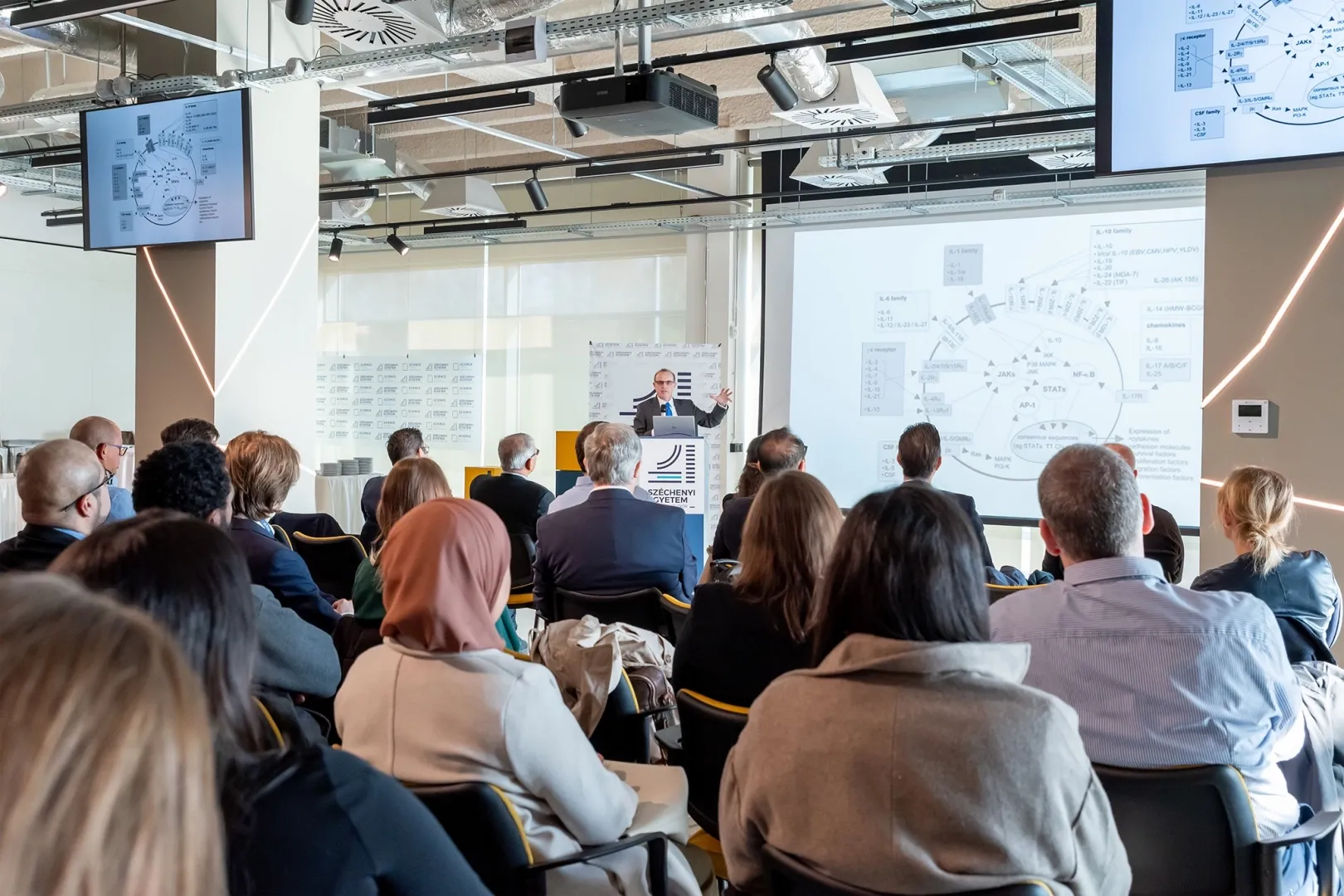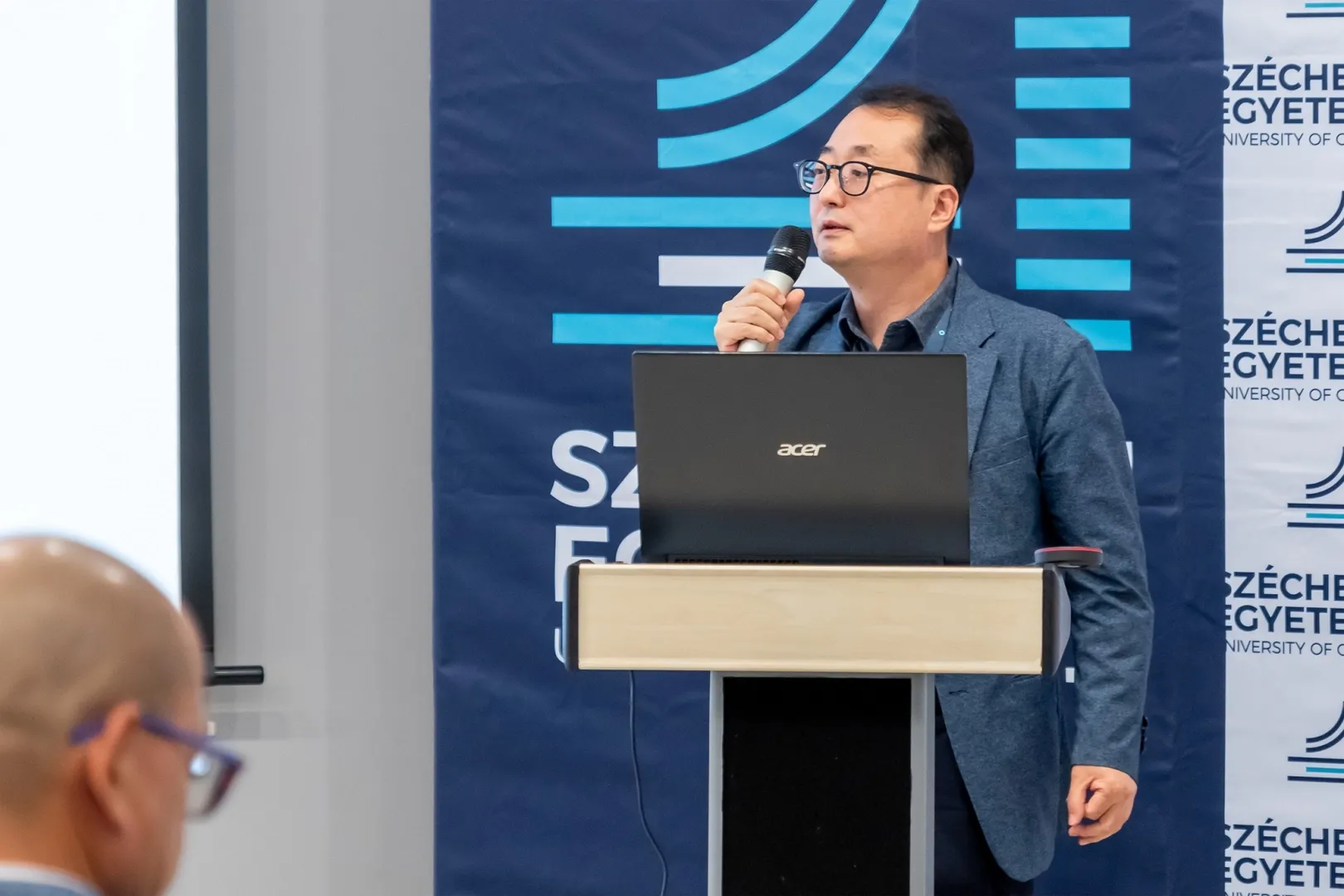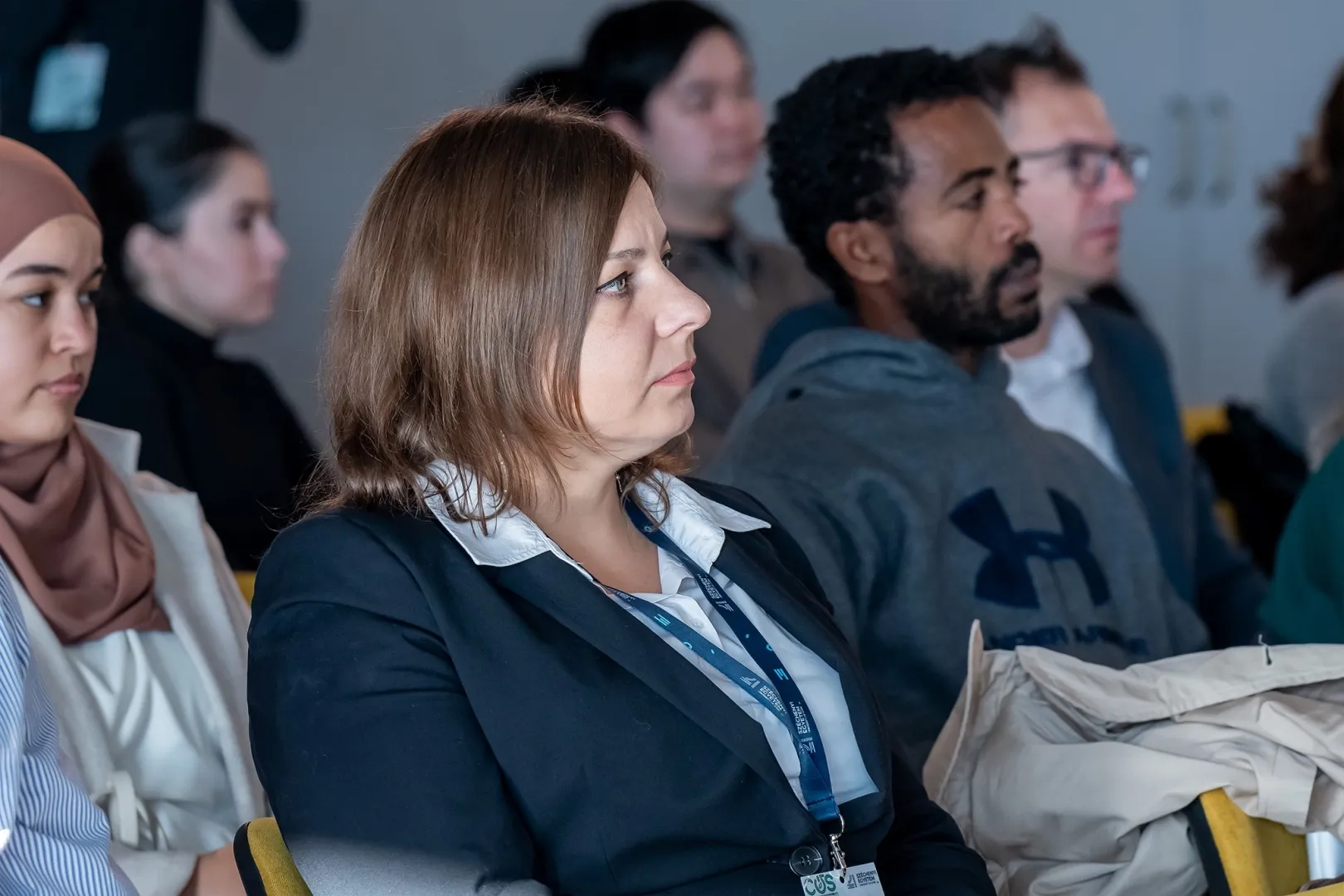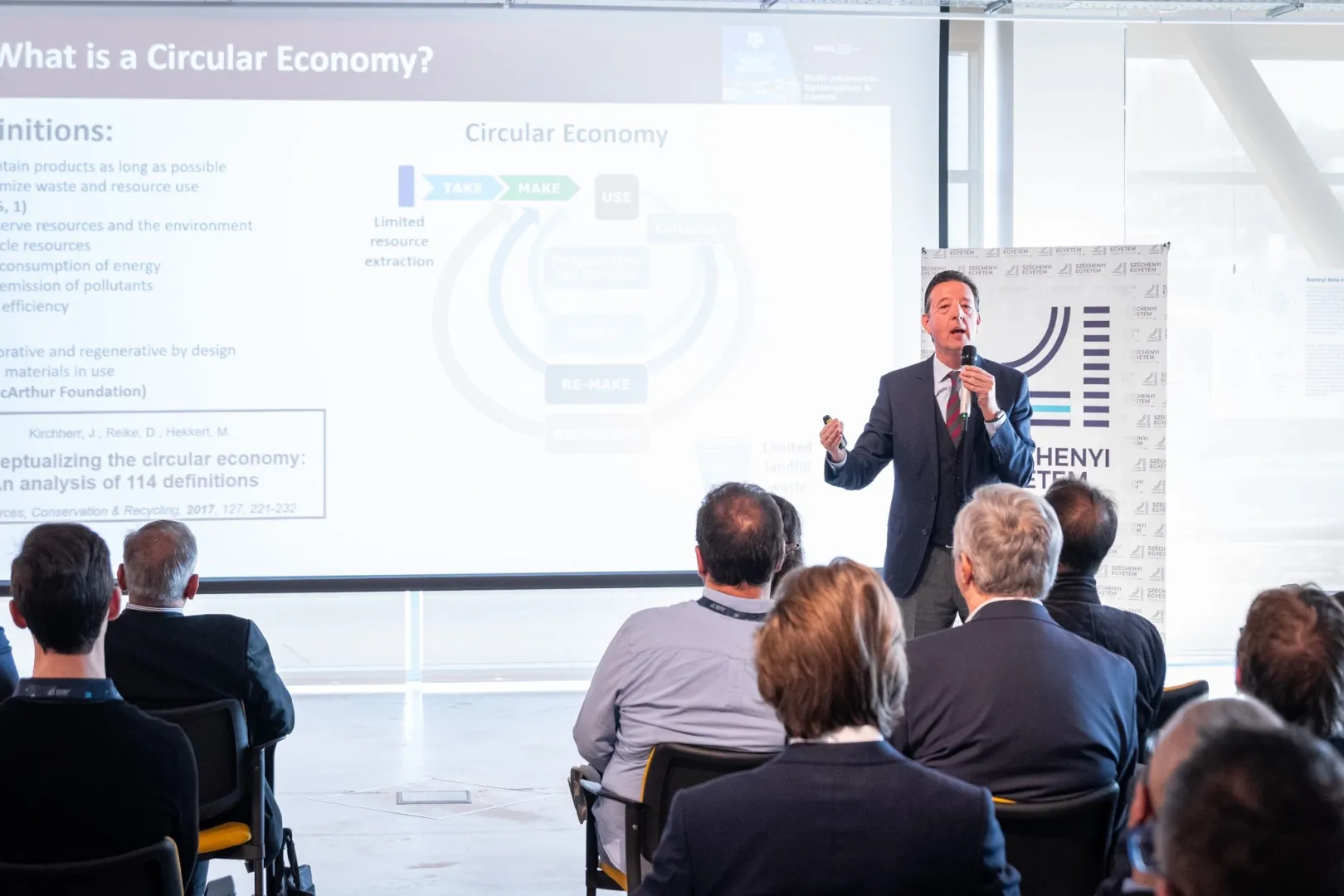Researchers from 12 Countries Gather for SZE’s Sustainability Conference
Last year, the International Conference on Sustainability (COS) of Széchenyi István University was launched with the participation of 150 speakers. 210 researchers and experts from 12 countries presented their research at this year's event, which took place from 6 to 9 November. Among the speakers were renowned scientists such as Dr Christopher Savoie, inventor of the artificial intelligence-based natural language technology used to develop Apple's Siri.
Széchenyi István University aims to contribute to sustainability through its education, research and international relations. This is the aim of the COS'24 conference organised by the institution's Sustainability Competence Centre for the second time this year. The event featured around 210 presentations on sustainability-focused research from different disciplines. Renowned experts from 12 countries came to the conference, representing fields such as economics, engineering, computer science, food engineering, agriculture, social sciences, transport, built environment, architecture, art, design, law and policy. Researchers from academic institutions, organisations and companies from Europe, North America, the Middle East and Asia, such as the Universities of Manchester, Denmark, Seoul, Tehran, Texas A&M University, and the US Environmental Protection Agency (US EPA), shared their latest findings with the audience.
Professor Ferenc Friedler, Rector and Vice-President of Scientific Affairs of Széchenyi University, welcomed the audience. He expressed his pleasure that this year again outstanding researchers and corporate experts in the field are participating in the programme, which contributes greatly to the building of scientific relations and at the same time confirms the leading international role of the Győr-based institution in sustainability research.
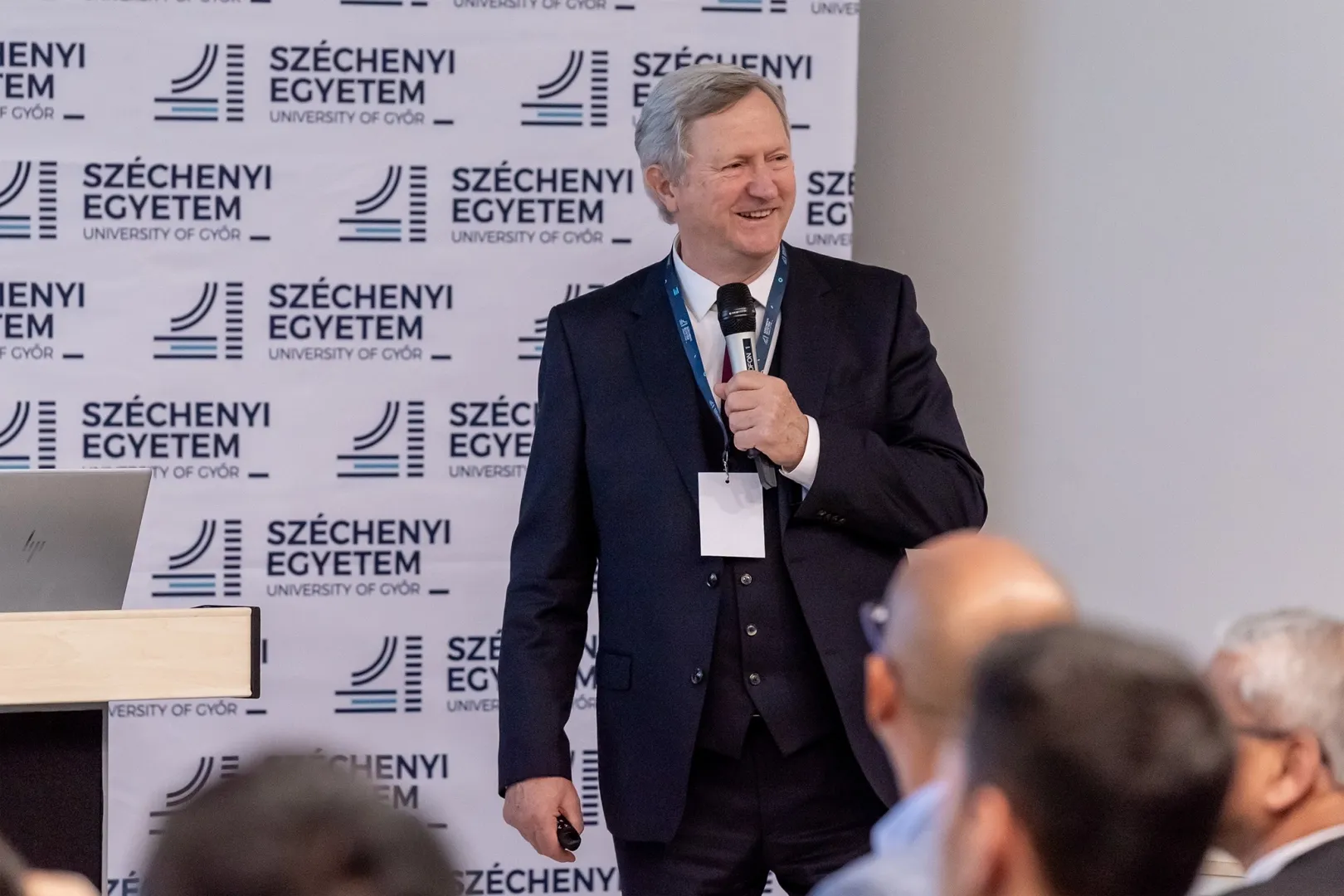
Professor Ferenc Friedler, Vice-President of Scientific Affairs and Rector of Széchenyi István University (Photo: András Adorján)
Dr Rafiqul Gani, Research Professor at the University and Chair of the International Scientific Committee of the conference, said that the event will provide an opportunity for speakers to discuss their experiences in the fields of sustainable technologies and systems and sustainable development.
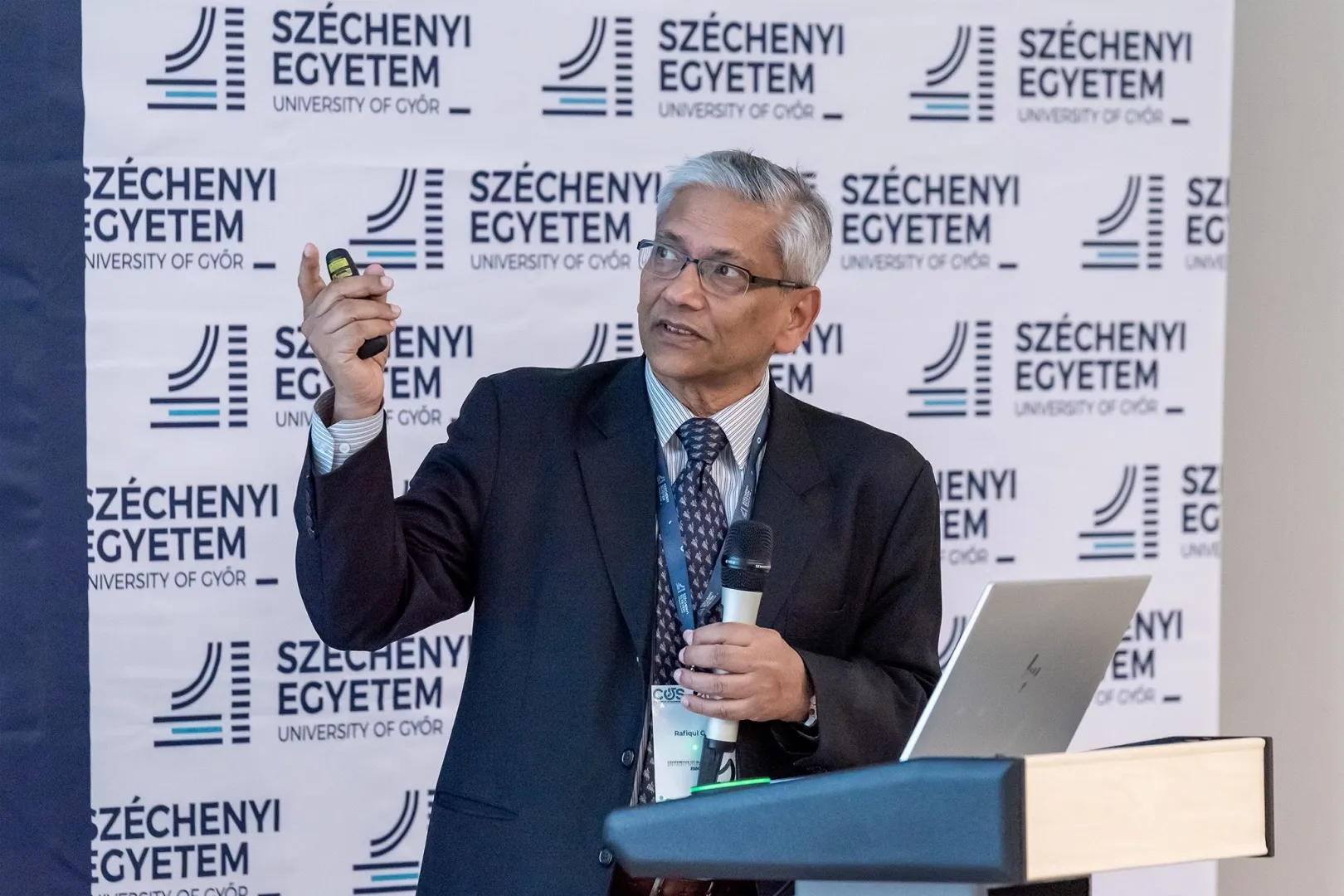
Dr Rafiqul Gani, Research Professor at Széchenyi István University. (Photo by András Adorján)
The four-day event was attended by renowned researchers from around the world, such as Christopher Savoie from the United States, who in the 1990s developed the artificial intelligence-based natural language interface technology for Apple's intelligent personal assistant programme, Siri. "During my career, I've done a lot of work on artificial intelligence, which has a big role to play in addressing sustainability issues, even as a tool for identifying systemic problems. But my development, which led to the later invention of Siri, was born out of something much simpler: I was annoyed by the constant problems I had programming my video recorder, which required countless button presses, and I wanted to create a simpler solution," he recalls.
He said that the idea came from a Japanese restaurateur who couldn't operate the remote control of her television, so she asked her son for help and he solved the problem immediately. "My colleagues and I thought how nice it would be to be able to just call someone whenever we needed help or information. For a long time, I had no idea that the invention would have such an impact, but today it has made life easier for millions of people, especially the visually impaired and disabled, and I am proud to look back on it almost 30 years later," he said.
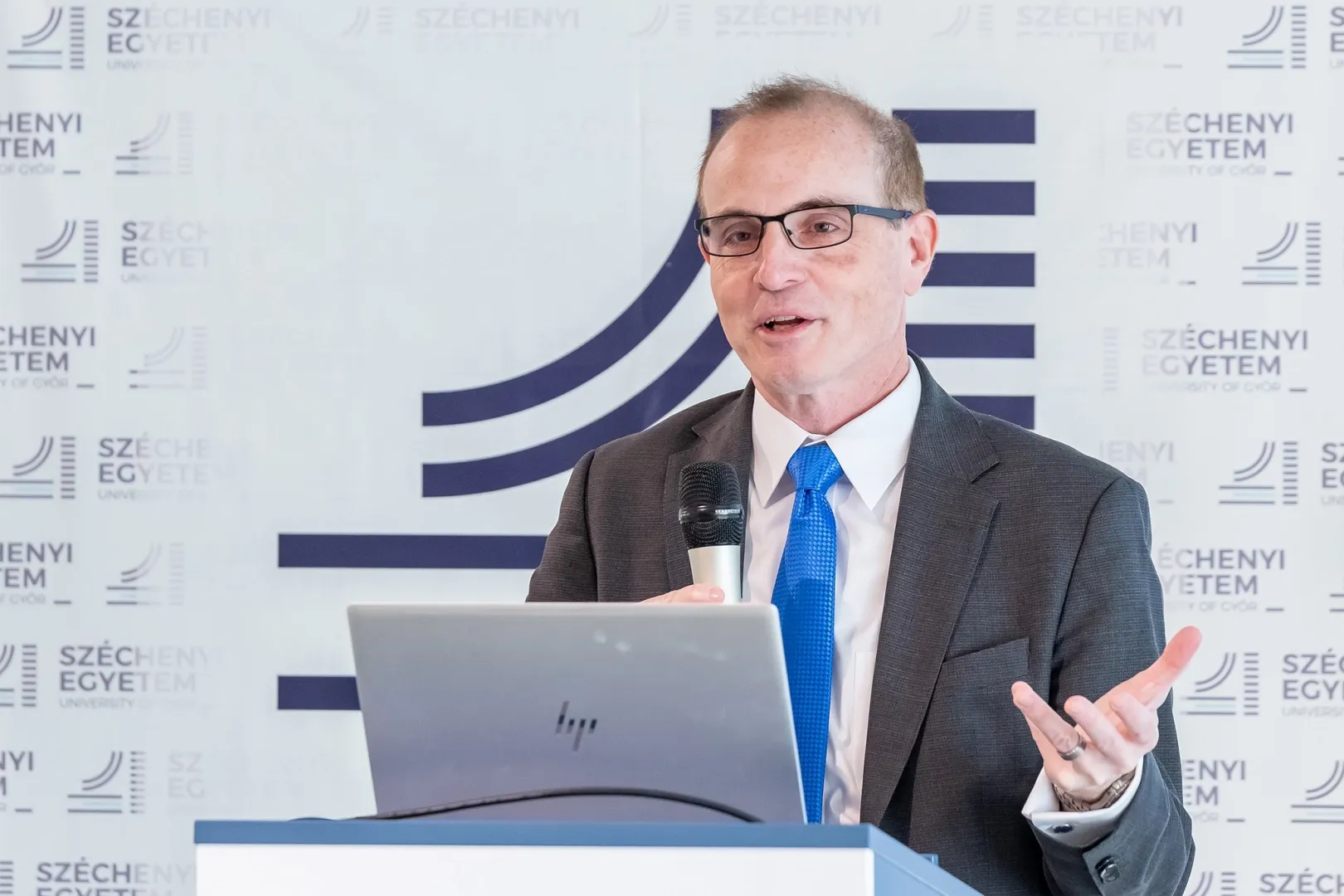
Dr Christopher Savoie, the inventor of the artificial intelligence-based natural language technology used in the development of Apple's Siri, also gave a presentation at the conference of Széchenyi István University. (Photo: András Adorján)
The scientist, who has extensive experience in computer science, biochemistry, medicine, data science and machine learning, has become increasingly aware of sustainable development over the years and now considers it a guiding principle of his thinking. "I spent a lot of time outdoors as a child, my Lithuanian grandfather taught me a lot about wildlife, so I became attached to nature from a very young age. These experiences also play a big role in my approach to sustainability, inspiring me to contribute to the preservation of our world and a sustainable future," he said. He added that technology has now somewhat isolated society from this way of thinking, but he considers programmes such as the COS conference, which put sustainability at the heart of science and raise awareness of its importance, to be an excellent initiative.
"The structure in which Széchenyi István University operates gives us a lot of opportunities to develop and to reflect on the future role of higher education institutions. We live in a global society, so it is important to consider the international impact of education, talent development and research and development," said Dr Savoie. He said that the University's leadership and staff, including Rafiqul Gani, who is a key organiser of the conference, and Professor Soheil Mansouri, who is a researcher from the Technical University of Denmark, plan to establish an international sustainability centre in Győr to implement international projects that will have a major impact on the future.
"The institution is unique in that its student teams, equipped laboratories, strong partnerships and automotive test track can provide a real practical background for this research," he said, "so everything is in place to make Széchenyi István University a leading research and development centre in the field, not only in Hungary or Europe, but also globally."
Gallery of the event (Photos by András Adorján / Máté Dudás)
